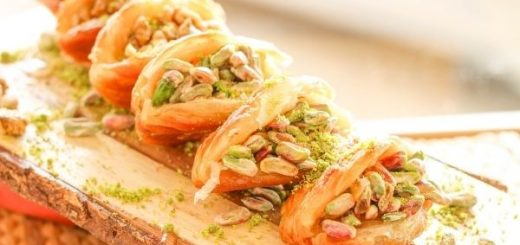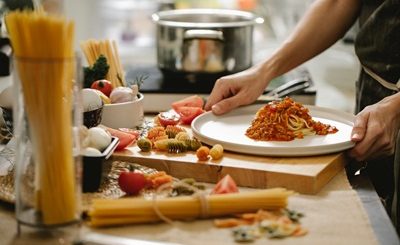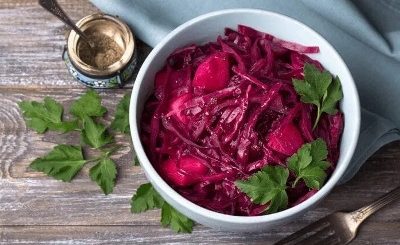What is Autophagy? Diet List, Nutrition Tips

Health with hunger! Autophagy manages to attract the attention of the scientific world more and more every day. Autophagy, which is shown as the secret of strong immunity and youth, prevents the formation and progression of many diseases, especially cancer. It protects the body against various infections.
So what is autophagy, what benefits does it have for the body? What are the autophagy feeding rules? The answers to all these questions and everything you wonder about autophagy are waiting for you in the rest of our article.
What is Autophagy?
- Autophagy, aka autophagocytosis; is the process of digesting aged and impaired cell structures by the cell’s own lysosome.
- The word autophagy means “eating oneself” in Ancient Greek. This statement fully reflects the process itself.
- Pride Khoran, a nutrition doctor at Columbia University, defines autophagy as “the body’s way of cleaning damaged cells to make new healthy cells.”
- Autophagy also means the desire to eat a person’s body parts. This is a serious psychological disorder and the person must be treated. However, in this article, we will deal with the process of autophagy at the cellular level.
- The term autophagy was coined by Belgian biochemist Christian de Duve in 1963. In the studies carried out; It has been revealed that the cell forms structures called sacs by surrounding some components in its own structure with a membrane and digests these structures by bringing them to the lysosome organelle, which is the recycling center. The lysosome organelle breaks down cell components and breaks them down into building block molecules.
- In the process of autophagy, the body breaks down the damaged cells within itself and recycles the parts obtained for cellular repair and cleaning. Thus, the stress and toxins accumulated in the cells are cleared.
We have prepared a daily sample menu for those who are looking for an example autophagy diet list. Based on this menu, you can prepare your own diet list or get help from a dietitian.
Snacks on the autophagy diet are generally recommended, but not entirely prohibited. If you feel very hungry, of course, except during the fasting period, dry fruits, dried fruit, yogurt, ayran, etc. healthy snacks can be consumed.
The time from dinner to breakfast is the fasting period. During this period, beverages such as unsweetened tea, coffee, water, herbal tea can be consumed.
Here is a sample autophagy diet menu for one day :
Breakfast:
- Boiled egg or omelet
- Lots of green salad
- Cheese
- Olive
Dinner:
- 1 bowl of soup
- Grilled fish, chicken, or red meat
- Protein-rich, green salad or yogurt
Autophagy Nutrition Tips
- The autophagy diet is one of the most popular topics in recent years. If you want your body to renew itself with autophagy, you may need to make some changes in your daily life and nutrition routine.
- Hunger is the basis of autophagy diet and nutrition. With starvation, cells become stressed and this stress initiates the autophagy process.
- Fasting or practicing intermittent fasting triggers autophagy. Some ketogenic diets are known to benefit autophagy, but no ketogenic diet is as effective as fasting.
- Eating two meals, ie skipping some meals, is the best way to initiate autophagy. Anyone over the age of 20 who does not have a serious illness can apply this method. If there is a chronic disease, a doctor should be consulted before doing intermittent fasting.
- The duration of fasting is intermittent fasting should not exceed 16 hours. Generally, a maximum of 14 hours of fasting is recommended for women and 16 hours for men.
- Between two meals, plenty of water, herbal tea, unsweetened tea, and coffee can be consumed.
- It is generally recommended to plan two meals like breakfast and dinner. Dinner must be eaten by 20:00 at the latest.
- In both meals, protein and vegetable-based foods should be preferred. Carbohydrate intake should be reduced; Avoid foods such as pastries and starchy foods.
- Apart from nutrition, another factor that triggers autophagy is exercise. According to studies, physical exercise triggers the autophagy process in some organs.
- Pregnant and lactating women, those who take drugs regularly, those with heart disease, diabetes, and those with chronic diseases should consult a doctor before doing an autophagy diet.
What Are the Benefits of Autophagy?
The benefits of autophagy can be summarized as follows:
- Autophagy prevents the formation of cancer and autoimmune diseases, diabetes, neurodegeneration, liver diseases, cardiomyopathy, and various infections.
- It nourishes the cells in terms of energy and molecular building blocks.
- It maintains the stability of DNA. It prevents damage to healthy tissues, organs, and cells.
- It repairs and recycles damaged organs and proteins.
- Eliminates the negative effects of toxic proteins in the body.
- It regulates and improves the functions of cell mitochondria.
- It contributes to the development of the brain by protecting the nervous system.
- It protects the heart and reduces the risk of heart diseases.
- It cleans damaged peroxisomes and endoplasmic reticulum.
- It supports the immune system.
- It is the secret of youth. It delays the signs of aging by renewing the cells.
- It prolongs life.
- It cleans the harmful cells that cause Parkinson’s and Alzheimer’s diseases. Thus, it minimizes the risk of contracting these diseases.











